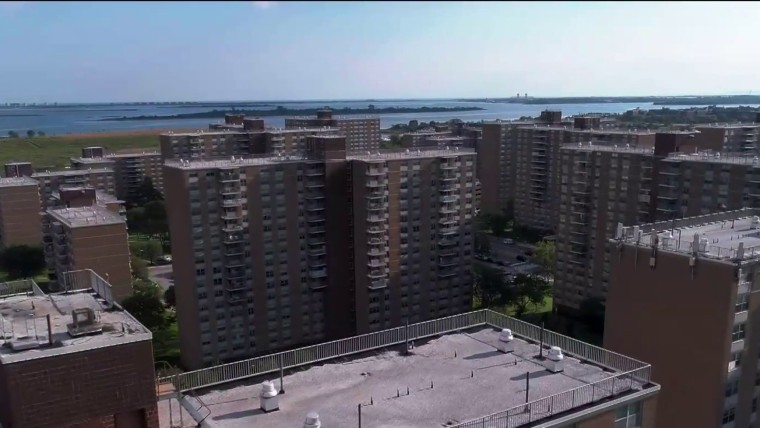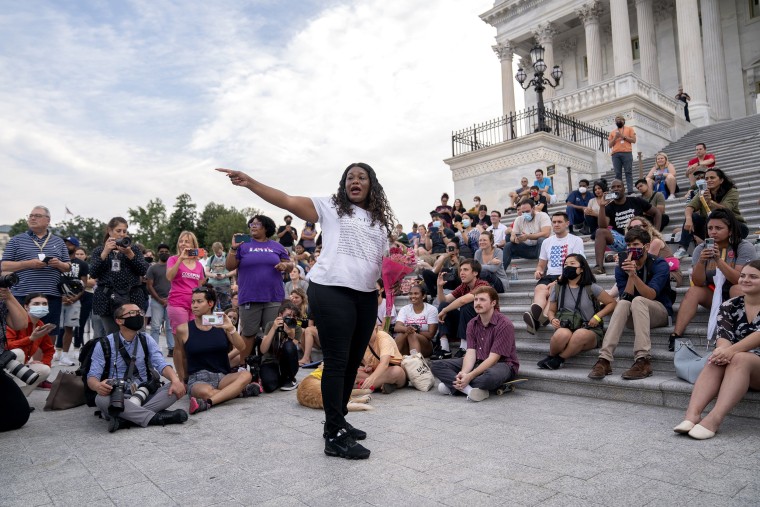WASHINGTON — Two landlord groups who are challenging the government’s latest eviction moratorium accused the Justice Department in a legal filing Friday evening of “gamesmanship” at the expense of property owners.
In a response in the U.S. District Court for the District of Columbia, the Alabama Association of Realtors and its Georgia counterpart reiterated their original argument that the new order halting evictions amounted to a "political maneuver" to extend an "unlawful" federal eviction moratorium.
"This gamesmanship comes at the expense of the nation’s property owners — who continue to suffer irreparable harm from the eviction moratorium every day this unlawful policy remains in effect," the filing said, asking the court to allow evictions to take place immediately.
U.S. District Court Judge Dabney Friedrich, who is overseeing the challenge to the new eviction moratorium, had ordered the government to respond, which it did early Friday morning. The landlords had until Friday evening to file their response.
"The CDC appears to have acted in bad faith by extending the moratorium — concededly without a legal basis, in response to political pressure, and for the purpose of generating litigation delays to continue an unlawful policy," the landlord groups said.
The Justice Department said in its response on Friday morning that the effort by landlords to block the latest eviction moratorium by the Centers for Disease Control and Prevention should be rejected because the Supreme Court ruling their argument points to is not in their favor.
In the filing, top department officials defended the new moratorium and said, “The motion should be denied, as it rests on the incorrect premise that the Supreme Court has issued a 'ruling' in Plaintiffs’ favor.”
The Biden administration has struggled with the evictiobarn moratorium, first saying that it lacked the authority to extend it after the July 31 expiration, but then reversing itself and putting in place a new moratorium while acknowledging the difficulty it may face in the courts.

The lawsuit brought by the groups of landlords earlier this week called on a federal judge to halt the new moratorium.
"A majority of the Supreme Court made clear that the eviction moratorium exceeds the CDC's statutory authority and could not be extended beyond July 31, thus vindicating this Court's first merits ruling. The Supreme Court's ruling was hardly ambiguous,” the landlords' filing said.
The Justice Department argued Friday that the latest moratorium differs from the CDC’s original one because it targets “only areas of high or substantial transmission.”

Since the Supreme Court’s ruling, the Justice Department argues, the “trajectory of the pandemic has changed dramatically as a result of the highly contagious Delta variant. The seven-day average of daily new cases is now 89,976 — nearly a seven-fold increase over the rate when the Supreme Court ruled on June 29.”
“Faced with these rising case numbers, and instead of extending its previous ‘nationwide eviction moratorium,’” the department added, “CDC has issued a new moratorium that applies only in areas of substantial or high transmission, thus exercising its authority to tailor a set of necessary actions to reduce the interstate spread of communicable disease.”
Under these circumstances, the department said that the court shouldn’t strike down the new CDC order, especially since it said the landlords haven’t filed an argument “asserting claims against the new, narrower CDC order.”
But the landlord group called that response a "meager defense" in its court filing Friday evening.
"The government resists reality by insisting that, unlike the prior extensions of the nationwide eviction moratorium, the fourth extension 'applies only in areas of substantial or high disease transmission,' the groups said. "That is a semantic distinction without a difference."

